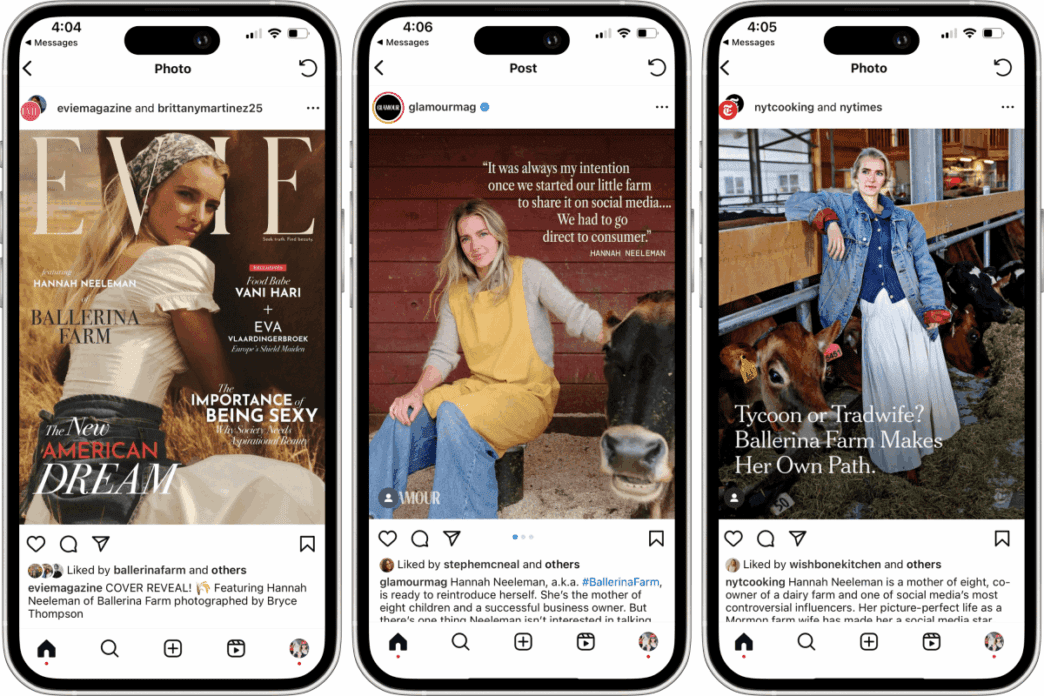Hannah Neeleman, famously known to millions as Ballerina Farm on social media, has become a subject of both admiration and critique. Living on a sprawling 328-acre farm in Utah, Neeleman, a Juilliard-trained ballet dancer turned farmer, captivates a massive audience with her traditional lifestyle. However, her portrayal of a ‘tradwife’—a term for women embracing traditional gender roles—has sparked heated debates.
Since 2017, Hannah has taken her followers on a journey through her life as a first-generation farmer alongside her husband, Daniel Neeleman, son of airline mogul David Neeleman. Her unconventional path, which led her to compete in a beauty pageant just days after childbirth, made headlines and divided opinions among moms everywhere. While some rally to her defense, others criticize her lifestyle.
July saw Hannah featured in The Sunday Times, where some perceived her story as one of sacrifice for her husband’s dreams. Yet, Hannah rebutted this narrative on Instagram, asserting the equality and shared responsibilities in her marriage. “We are co-parents, co-CEOs, co-diaper changers, kitchen cleaners and decision-makers,” she stated.
[instagram-embed-display instagram_id=’C-GeBacSJx2′]
The media spotlight continued to shine on Neeleman through features in various publications. Evie magazine celebrated her as a symbol of timeless values and the ‘new American Dream’. Glamour shifted the focus away from her ‘tradwife’ label, highlighting her entrepreneurial spirit and commitment to both her business and family.
Hannah’s narrative includes efforts to correct misconceptions, explaining that her decision to start a family business was self-driven. Her influence extends to multiple platforms, with her life being showcased in the New York Times, which clarifies that she has help at home, contradicting the notion of her being a lone supermom.
Criticism isn’t in short supply, though. Some view her as a figurehead for ideological battles involving traditional gender roles, sparking discussions about the impact of her image on political and social discourse.
Voices like Sara Petersen and Gabby Del Valle highlight the skepticism around the polished facade of Ballerina Farm, questioning the attainability of such a lifestyle for the average person. Meanwhile, fans appreciate her candidness and the inspiration they draw from her life’s sharing.
Conversely, critics like Jo Piazza argue that beneath the picturesque depictions lies a narrative saturated with far-right cultural ideals, making it a tantalizing but potentially misleading fantasy. This discussion spurs reflection on the gap between reality and perception, stoking ongoing interest and debate.
Hannah Neeleman, with her idyllic Ballerina Farm, continues to be a polarizing figure—admired by many for her seemingly idyllic lifestyle, yet critiqued by others for what they perceive as an unrealistic portrayal. As conversations swirl around her, Hannah remains a fascinating example of how personal choices and their public portrayals can ignite societal discussions.
Source: Yahoo – Instagram







